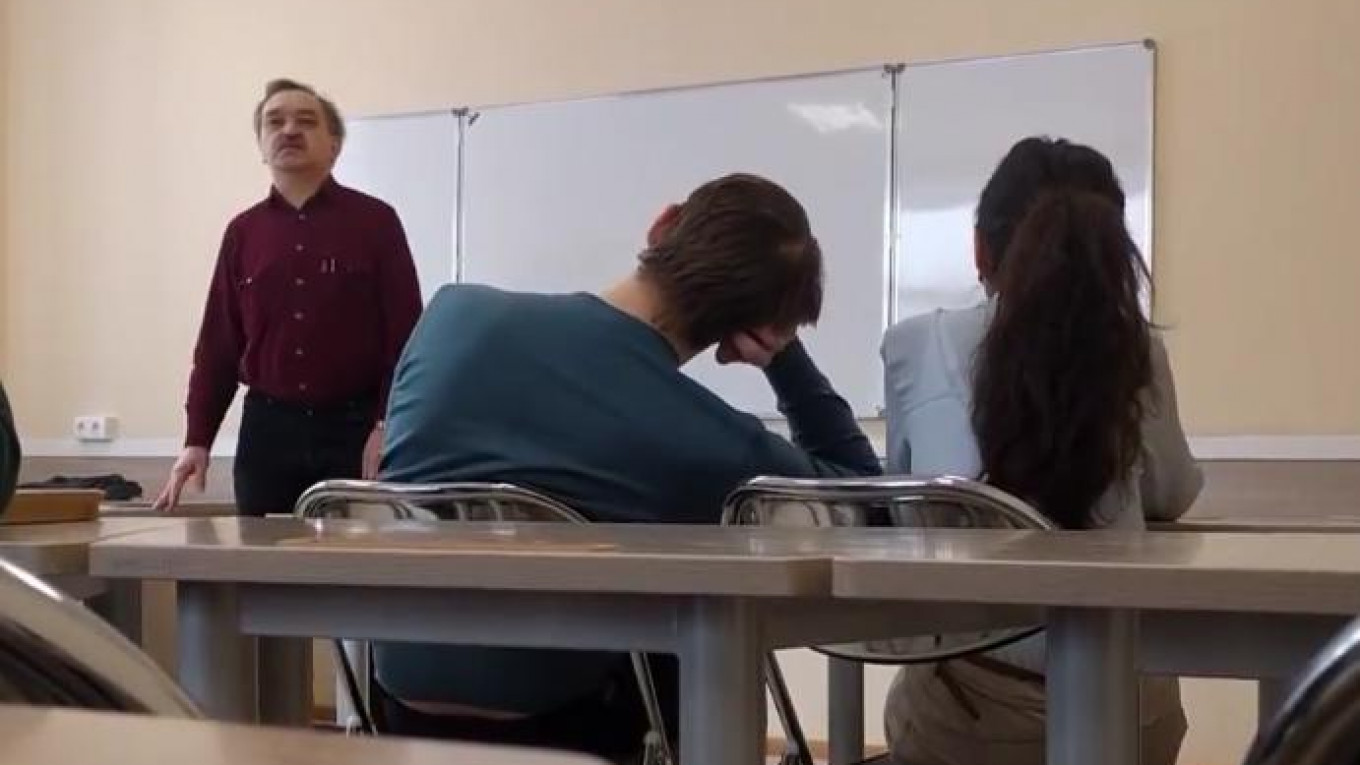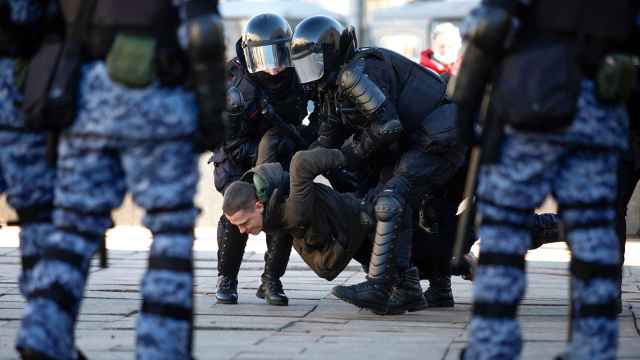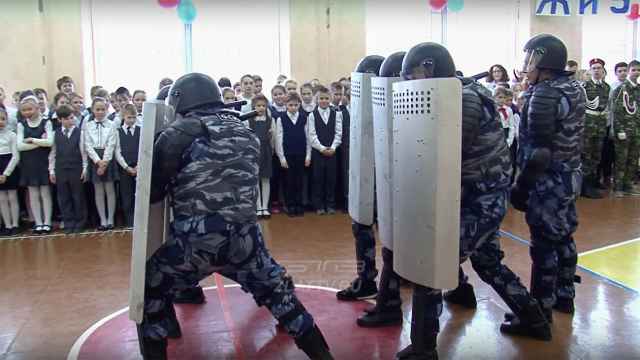Russian opposition leader Alexei Navalny has tapped into the country’s politically conscious youth, who showed up in large numbers for last Sunday’s nationwide protests against corruption. Navalny owes much of his success with young people to his sleek, satirical online videos and blogging. In the past several weeks, Russian youths have even responded with their own viral trend: videos filmed in classrooms capturing teachers and administrators trying to indoctrinate students.
The most recent example is a video recorded at Tomsk State University, where lecturer Nikolai Pichkurov addressed his classroom, the day after mass protests swept the country, including in Tomsk. In the video, Pichkurov excoriates the students for attending the demonstration, telling them that it’s impossible to end corruption. He also insulted the students who protested, calling them “freaks” and implying that they only attended the rally to make some money. “Find other ways to earn an income,” he begged the classroom.
Pichkurov also tried to convince his students that theft is normal, if not essential, in every government. “If a state has no corruption, it means that’s a state nobody needs,” he reasoned, arguing — with allusions to Peter the Great — that officials stealing from the government is a sign of a healthy, well endowed country.
“Of course, those who overreach should be thrown in prison,” Pichkurov also acknowledged, refusing to clarify when healthy corruption becomes “overreaching.”
A Message from The Moscow Times:
Dear readers,
We are facing unprecedented challenges. Russia's Prosecutor General's Office has designated The Moscow Times as an "undesirable" organization, criminalizing our work and putting our staff at risk of prosecution. This follows our earlier unjust labeling as a "foreign agent."
These actions are direct attempts to silence independent journalism in Russia. The authorities claim our work "discredits the decisions of the Russian leadership." We see things differently: we strive to provide accurate, unbiased reporting on Russia.
We, the journalists of The Moscow Times, refuse to be silenced. But to continue our work, we need your help.
Your support, no matter how small, makes a world of difference. If you can, please support us monthly starting from just $2. It's quick to set up, and every contribution makes a significant impact.
By supporting The Moscow Times, you're defending open, independent journalism in the face of repression. Thank you for standing with us.
Remind me later.






